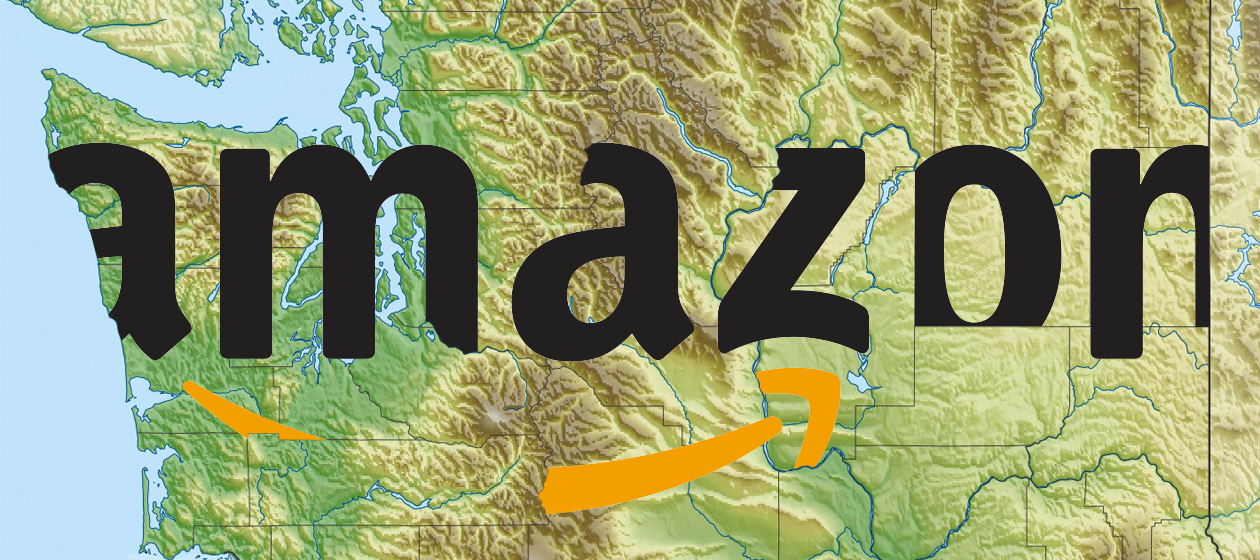A $15 minimum wage is great for Amazon. It is not great for America.
Please, Washington: Don't follow Jeff Bezos' lead


A free daily email with the biggest news stories of the day – and the best features from TheWeek.com
You are now subscribed
Your newsletter sign-up was successful
Before Amazon started showing billion-dollar profits, there was a joke that the massive public company was in reality a charity run by Wall Street investors for the benefit of American consumers. But that humor revealed a deep misunderstanding of Amazonomics. The internet retailer was never any sort of philanthropy. Instead it was a rapidly growing business that invested every dollar of excess cash back into growing the business even further. It sacrificed short-term profitability for innovation and growth. It was capitalism done right.
Given that wildly successful strategy, we can be confident that Amazon boss Jeff Bezos, the world's wealthiest person, has coolly calculated that it makes ample business sense for Amazon to raise the minimum wage it pays its U.S. workers to $15 an hour. The logic seems obvious. The boost would give the trillion-dollar retailing giant an edge over rivals such as Walmart and Target in the competition for increasingly scarce workers. It also gives the company a reputational lift — or perhaps a political heat shield — after politicians such as Bernie Sanders have attacked it for its labor practices, including how some employees receive assistance from government safety-net programs.
Hiking the minimum wage makes sense for Amazon and its workers. That doesn't mean it makes any sense for Washington to follow suit.
The Week
Escape your echo chamber. Get the facts behind the news, plus analysis from multiple perspectives.

Sign up for The Week's Free Newsletters
From our morning news briefing to a weekly Good News Newsletter, get the best of The Week delivered directly to your inbox.
From our morning news briefing to a weekly Good News Newsletter, get the best of The Week delivered directly to your inbox.
Many people are treating Amazon's move as a call to raise the federal minimum wage to $15 — double the current $7.25 level. Although there is research supporting both sides of this issue, cautious policymakers should consider such a big jump to be way outside their acceptable comfort level. They should absolutely consider the risk of job loss for low-wage workers if there were a massive hike that affected workers living in both high- and lower-wage regions. It is foolish to assume that if the cost of employing a worker is doubled they will all still retain their jobs.
For instance: New peer-reviewed research from University of California at San Diego economist Jeffrey Clemens and my AEI colleague Michael Strain looks at what happened to employment in states that raised their minimum wages between January 2013 and January 2015. Now, these increases were nothing like what the Fight for 15 folks have in mind. The average boost was less than a dollar. Yet Clemens and Strain found larger increases, those exceeding $1, "resulted in employment declines of just over one percentage point among teenagers, among individuals ages 16 to 21, and among individuals ages 16 to 25 with less than a completed high school education."
Perhaps longer-run results would be different. But these and other similar findings signal caution is warranted. One can find plenty of economists on the left and right who think that while $15 an hour may make sense for some companies, a one-size-fits-all approach for businesses big and small around the country is a "risk not worth taking," as former Obama White House economist Alan Krueger has put it.
But American workers do need help. And thankfully, there is a way to help lower-income workers without all those employment risks. It's the refundable Earned Income Tax Credit, the existing federal earnings subsidy that economists broadly agree is well targeted toward the working poor, boosting incomes and work. Unfortunately the EITC is the kind of income-support program that the left attacks when it helps the families of workers at Amazon and Walmart. Sanders cooked up the Stop Bad Employers by Zeroing Out Subsidies (Stop BEZOS) Act, which would slap a tax on large corporations equal to federal benefits used by their low-wage workers.
A free daily email with the biggest news stories of the day – and the best features from TheWeek.com
It's a terrible idea. We don't want to encourage employers to discriminate against workers who might draw government benefits, even as those jobs mean fewer Americans need government help. Nor is it reasonable to expect employers to pay workers more than what they are worth to the firm. And isn't ensuring our fellow citizens reach a sufficient standard of living actually the responsibility of society as a whole? After all, the left doesn't describe national health insurance — which lets employers off the hook for their workers' health coverage — as some sort of massive subsidy to Big Business. Amazon haters might also want to consider that even before this wage hike, ecommerce fulfillment centers like Amazon's typically paid 30 percent more than brick-and-mortar retail in the same area, according to economist Michael Mandel. Finally, the recent clear upturn in wages is another bit of evidence that American capitalism is not broken, despite what progressives argue.
Bezos, who recently vowed to give $2 billion to charity, has recently upped his philanthropic efforts. But that doesn't mean Amazon has to be a charity or compelled by government for its workers to benefit.
James Pethokoukis is the DeWitt Wallace Fellow at the American Enterprise Institute where he runs the AEIdeas blog. He has also written for The New York Times, National Review, Commentary, The Weekly Standard, and other places.
